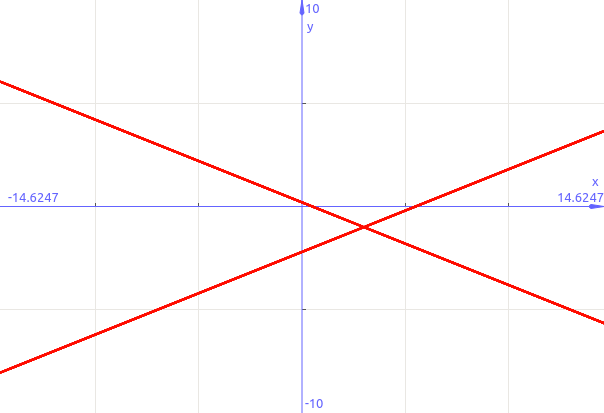Why does the equation 4x2−25y2−24x−50y+11=0 not take the form of a hyperbola, despite the fact that the squared terms of the equation have different signs? Also, why can this equation be put in the form of hyperbola2(x−3)213−2(y+1)226=1
3 Answers
To people, answering the question, please note this graph: https://www.desmos.com/calculator/jixsqaffyw
Also, here is the work for getting the equation into the form of a hyperbola: 
Actually, this is not what I have:
I have that
so it's a reducible conic whose polynomial has real roots
So it splits up in 2 real-valued lines which intersecate in the center
The first statement is only necessary to have an hyperbola: you need also the equation not to be reducible, or you have a degenerate conic.
Check your calculations, and don't worry, everybody makes mistakes in calculations :)
The graph of the equation



